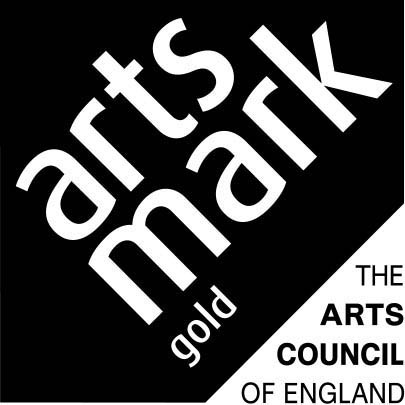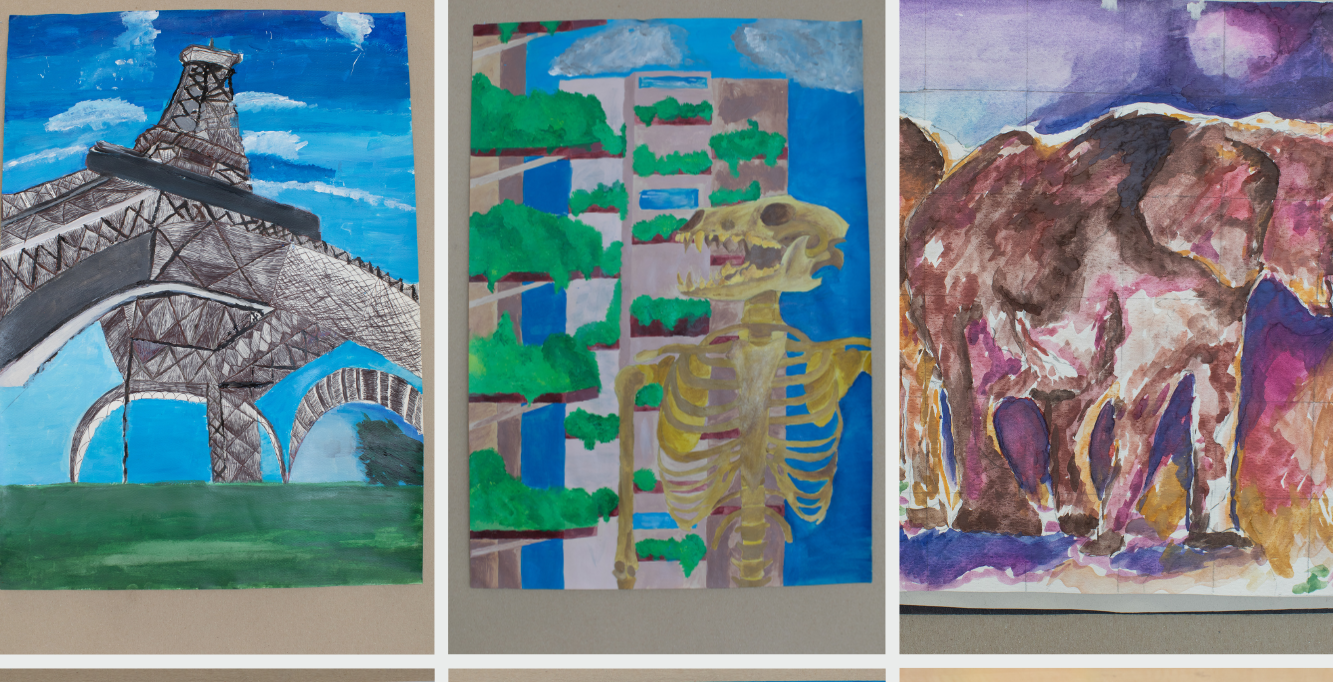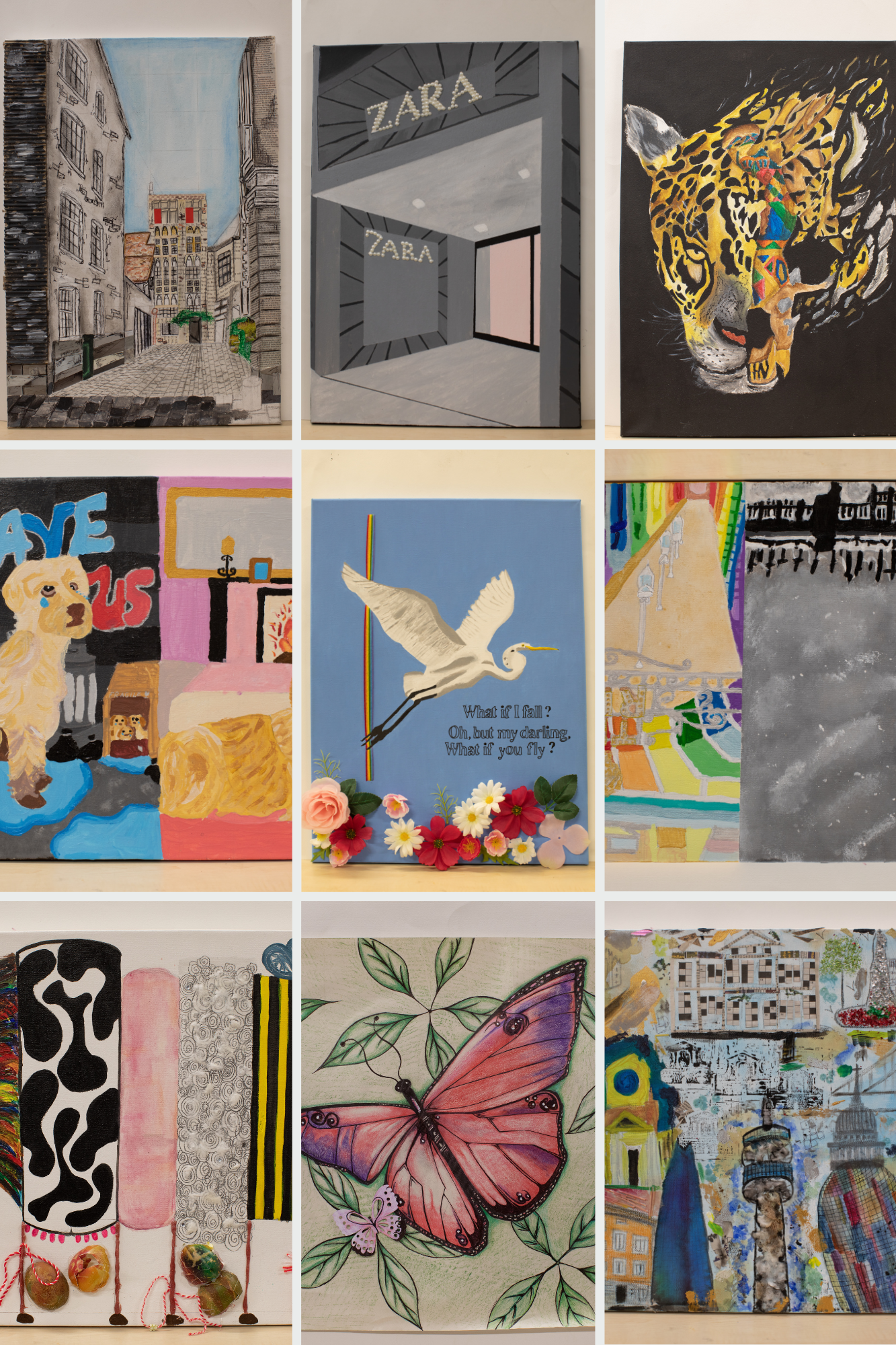Art and Photography
Art is taught once a week in Key Stage 3 and pupils can opt for GCSE Art or Photography in Key Stage 4.
Welcome to the Art Department at Emerson Park Academy
STAFF: Mr D Sunday Subject Leader Mrs N Barrow
RESOURCES:1 Art room, 1 Art / Pottery studio, Screen Printing Equipment, iMac computers/ MacBook Pro laptops / Adobe Photoshop software, Canon Photographic Equipment.
The art rooms are spacious and well-equipped, offering a wide range of tools, materials, and resources. They feature interactive smart boards and facilities for computer-aided design, along with photography equipment.
The Art/Pottery studio includes a potter’s wheel, two kilns, and a pugmill.
Recently, the department introduced Photography, providing students with access to academy-supplied DSLR cameras, iMac computers, MacBook Pro laptops, and the Adobe Creative Suite, including Adobe Photoshop for digital photo processing and manipulation.
Student work is displayed in classrooms and throughout the school. We also showcase art around the academy and celebrate regular success in art competitions.

Key Stage 3
During Key Stage 3, pupils engage in a diverse range of activities to develop their technical and imaginative skills in both two-dimensional and three-dimensional art. While individual work is predominant, there are opportunities for collaborative partners and group projects.
Studies encompass direct observational work, imaginative illustration and design, personal experience, investigation, and research. Pupils also explore the works of various artists and the art of ancient and modern world cultures.
Assessment
Each pupil's progress is recorded from Year 7 to Year 9, following the new Art and Design progress objectives. Projects are assessed using relevant criteria, with sketchbooks reflecting the 9 to 1 grading system, including feedback and targets.
Homework
Regular homework is assigned via the "GO 4 Schools" website, with pupils expected to spend 30–60 minutes on it. Each pupil receives an A4 laminated art book for both homework and classwork.
Projects undertaken during Key Stage 3 include:
Year 7:
- Development of skills based on the elements of art and colour theory.
- Techniques in drawing, painting, printing, mixed media, sculpture, and collage.
- Introduction to 3D work.
- Study of artists and art movements.
Year 8:
- Appreciation and application of texture, line, and pattern in natural and man-made environments.
- Advanced 3D work.
- Study of different world cultures.
Year 9:
- Analysis of perspective, scale, proportion, and composition.
- Consolidation of formal elements learnt in Years 7 and 8.
- Surrealism and the Art of Portraiture
Key Stage 4
At Key Stage 4, students undertake the AQA GCSE syllabus for Art and Design, as well as Photography. Our comprehensive Art, Craft, and Design course enables exploration across diverse disciplines, including painting, drawing, graphics, ceramics, mixed media, textiles, printing, sculpture, and photography. Assessment is divided into 60% coursework and 40% final examination, collectively forming the overall grade. Additionally, GCSE Art and Photography students are required to attend a weekly one-hour after-school session for supplementary coursework support.
Homework
GCSE students are regularly assigned homework, which is crucial for their coursework portfolio. These assignments are posted on the GO 4 Schools website, ensuring both parents and students can access and monitor them.
GCSE Results
Year 11 pupils consistently achieve excellent results, with 70%-90% earning grades between 9 and 4.
School Trips
The department organises essential excursions to the Zoo, Central London's Southbank, St. Paul's Cathedral, the V&A, the Tate Modern, and the Saatchi Gallery. Attendance on these trips is mandatory, as they play a crucial role in fulfilling the GCSE Art and Photography assessment criteria, as stipulated by the exam boards and Ofsted.
Many students extend their art education into A-levels, BTEC, and HND programmes at college, ultimately leveraging their art qualifications to pursue professional careers. Some of our alumni have progressed to university studies in fields such as Product Design, Architecture, Art, and Graphics.



